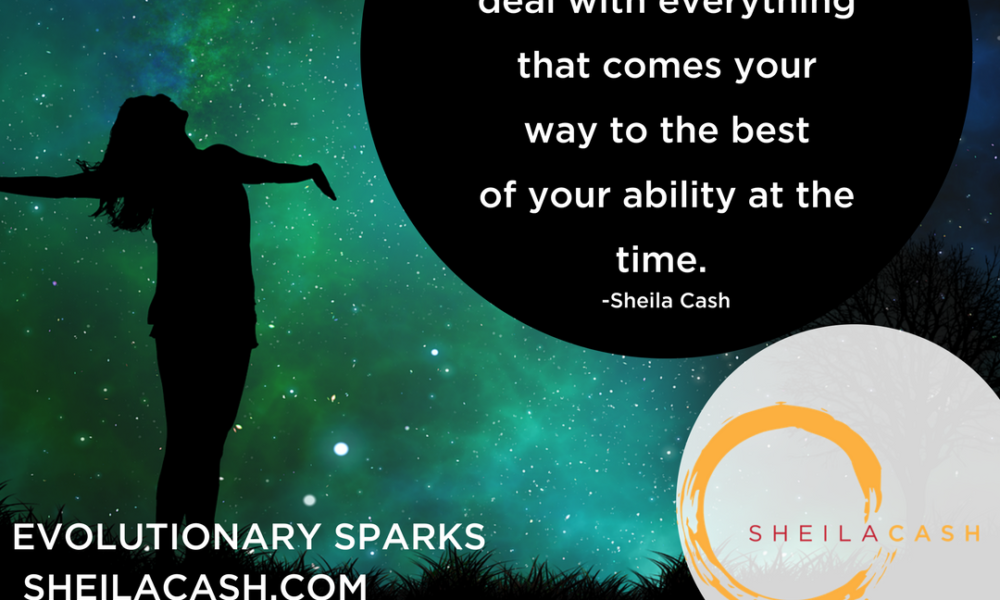
The most satisfying stories in books and movies are the ones in which the good guys and gals are rewarded and the bad ones go down in flames (or some other appropriately painful and/or humiliating manner in direct proportion to the pain and humiliation they caused to others). Revenge is sweet.
Harry Potter obliterates Voldemort (spoiler alert), then marries Ginny and fulfills his dream of becoming an auror. Jafar’s plot is foiled, Aladdin marries Princess Jasmine, and the Genie gets his freedom. Dorothy melts the Wicked Witch of the West, then returns home to her wholesome and sweet family and friends on the farm in Kansas.
We love these endings even more in “real” life. Local heroes receive recognition from their communities. An anonymous patron leaves a deserving waitress a $1000 tip. Murderers and rapists end up behind bars. Firefighters rescue a litter of kittens from a burning building.
These are satisfying, feel-good stories because wrongs are righted, justice is done, and all is right in our ideal, moral universe.
But life isn’t always like that, is it?
Sometimes people who smoke, drink, eat fried food and never exercise live long, productive lives, and die gently in their sleep at a ripe old age. Decent, generous people suffer pain, anguish, and loss, and struggle for basic necessities. Others who lie, cheat, steal and kill roam free on technicalities. Former Nazis live out their lives in luxury on tropical beaches. Where is the justice in these scenarios?
Believing that there is justice in the universe satiates our programming for equality in the world of good and bad, reward and punishment. Having faith that the grave unfairness we’ve endured will be all cleaned up in the afterlife, even if not here, makes us feel that at some level someone is looking out for us after all.
At the root of the concept of karma is a system of cause and effect, one of the natural laws of the universe. Cause and effect is a complex and dynamic organization containing an infinite number of intentions and reactions, making karma not as simple an idea as “an eye for an eye.” What is considered “good” or “bad” differs according to cultures, eras, and the egos involved. What’s considered to be good locally for some may be bad globally for others. Widely held beliefs about karma imply that divine judgment is involved at some level.
But the universe does not judge us. We judge ourselves. What is perceived as karma is simply the universe’s attempt to balance in a homeostatic way. The universe is letting humanity work out its balance. This is evolution. Cause and effect leaves out the judge.
One of the ways we’ve dealt with our human need for justice is to set up our own systems of rewards and punishments. But our attachments to rewards and punishments have huge implications, particularly where war and peace are concerned.
Judgment and justice are nested in an early paradigm of consciousness where we sought to more clearly define our boundaries, ameliorate chaos, set forth a standard for growing civilizations and balance egos. History shows us that punishment begets punishment begets punishment. Egoistic reactions can never bring us to the peaceful balance we ultimately seek.
The natural law of cause and effect exists within our physical world and at the level of other dimensions that are close to the physical plane. The higher the level of consciousness, the more the extent of this law diminishes, as it is no longer needed to ameliorate struggles and negative patterns in our lives.
Many of us stay in dysfunctional and imbalanced patterns of behavior that go on for years, or even decades. But we can always decide when and how to change our perception and our actions. The more awareness we have, the greater impetus there is to shift. You have many opportunities to deal with people, places, and things; The lessons you choose to actively recognize and process are based on your level of consciousness at any given time.
When you encounter situations you have chosen to process, they may seem to contain lessons about issues that originated before this lifetime, especially if the lessons keep coming back around. But there are many lessons that have the potential to change you and affect you deeply. At any given time, you choose whether to learn and overcome or turn away into denial and repression. The latter results in those particular “lessons” rearing their ugly heads again in your life and then you will call it karma.
The way to release “past life karma” is to face and deal with everything that comes your way to the best of your ability at the time. Because every thought you think and every action you take is stored in the collective consciousness and ultimately programmed into humanity’s DNA, the way you live your life is your distinct, invaluable contribution to humankind.
When you have brought your highest consciousness to a lesson, and have dealt with it to the point where it is not charging your emotions but instead brings you a sense of peace and balance, you will know you have successfully processed it, and you will no longer draw that particular lesson into your life.
What “lesson” in your life keeps coming back around in technicolor? What will it take for you to face it and make the changes that will innervate and strengthen your future forever? The day that you are willing to stop throwing your misguided victimization to the winds and take personal spiritual responsibility is the day that you will embody empowerment. You will have stepped onto the road of self-actualization. Take the steps forward now that will make today the day that your life shifted to a higher plane of conscious fulfillment forever. Your karma will thank you for it.


Facebook
Twitter
Pinterest
Instagram
Google+
RSS